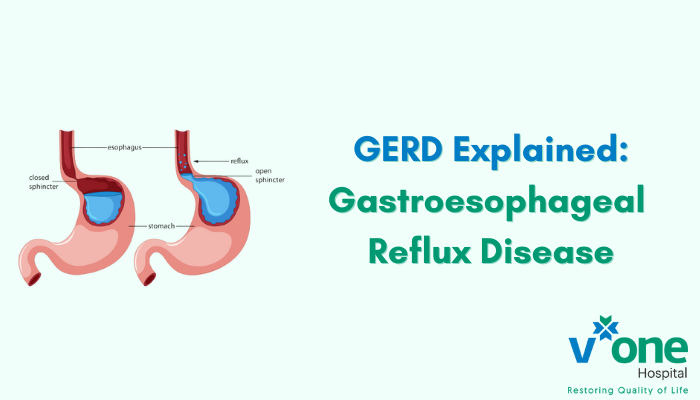GERD Explained: Managing Gastroesophageal Reflux Disease
Gastroesophageal Reflux Disease, commonly known as GERD, is a chronic condition where stomach acid frequently flows back into the esophagus, causing discomfort and potential complications. Managing GERD is crucial for maintaining a good quality of life and preventing further health issues.
Understanding GERD
GERD occurs when the lower esophageal sphincter, a muscular ring at the base of the esophagus, doesn’t close properly. This malfunction allows stomach acid to escape into the esophagus, leading to symptoms like heartburn, regurgitation, chest pain, and difficulty swallowing. Common causes include obesity, hiatal hernia, pregnancy, and certain foods. Understanding these factors helps in adopting preventative measures.
Diagnosis of GERD
To accurately diagnose GERD, gastroenterologists in Indore employ various tests. Endoscopy, where a thin tube with a camera is inserted into the esophagus, provides a visual of the affected area. pH monitoring measures acid levels in the esophagus, and imaging tests like X-rays and CT scans can identify complications such as esophagitis.
Lifestyle Changes for Managing GERD
Lifestyle modifications play a significant role in managing GERD. Dietary changes involve avoiding trigger foods like spicy and acidic items. Portion control, mindful eating, and maintaining a healthy weight reduce pressure on the stomach, decreasing the likelihood of reflux. It’s essential to avoid lying down immediately after meals and consider elevating the head of the bed for a more restful sleep.
Medications for GERD
Medications are often prescribed to manage GERD symptoms. Antacids neutralize stomach acid, providing immediate relief. H2 blockers reduce acid production, and proton pump inhibitors (PPIs) block acid secretion in the stomach lining. However, it’s crucial to follow the healthcare provider’s prescription, considering the dosage and potential side effects.
Natural Remedies and Home Treatments
Several natural remedies can aid in managing GERD symptoms. Ginger has anti-inflammatory properties, aloe vera soothes the esophagus, and chamomile tea can promote relaxation and reduce acidity. However, it’s essential to consult a gastroenterologist before trying any home remedies to ensure they won’t interfere with prescribed medications or worsen the condition.
Complications and When to Seek Medical Help
Untreated GERD can lead to complications such as esophagitis (inflammation of the esophagus) and Barrett’s esophagus (precancerous changes in the esophagus lining). Warning signs like difficulty swallowing, persistent chest pain, or unintended weight loss indicate severe complications, requiring immediate medical attention by a top gastroenterologist in Indore.
Prevention Tips
Preventing GERD flare-ups involves adopting healthy eating habits, including smaller meals and avoiding late-night snacks. Stress management techniques such as yoga and meditation can reduce anxiety-induced acid reflux. Regular follow-ups with a healthcare provider are vital for monitoring the condition and making necessary adjustments to the treatment plan.
Conclusion
In conclusion, managing GERD involves a combination of lifestyle changes, medications, and professional guidance. Understanding the condition, adopting preventive measures, and seeking timely medical help for complications are key steps in effectively managing GERD. By taking these measures, individuals can significantly improve their quality of life and minimize the impact of this chronic condition.
Remember, consulting a top gastroenterologist in Indore is essential for personalized advice and treatment, ensuring a healthier, happier future free from the discomforts of GERD.

